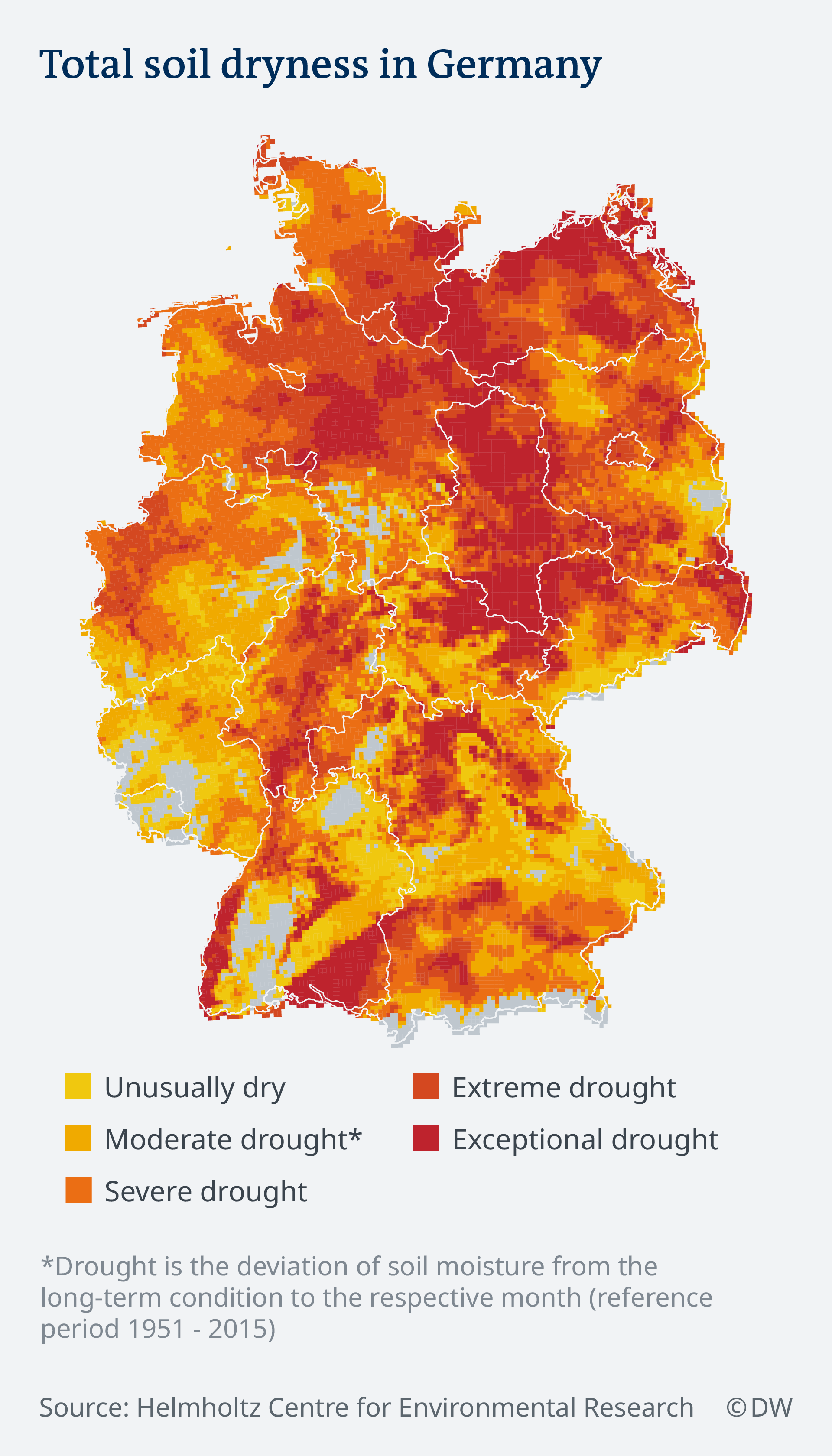After Scorching 2018 Drought, German Farmers Already Having To Water Their Fields - In May
As farmer Markus Schwarz drives his spade into the ground, the soil he brings to the surface is so dry that the wind blows it away. "We can see here that the first 10 cm of the surface are as dry as dust," he says. "But it ought to be moist so the plants can strike roots."
Schwarz tends to 150 hectares of lettuce, broccoli, strawberries and cauliflower on his farm in western Germany's Rhineland region. Temperatures there have already climbed to 25 degrees Celsius, though it's still only spring. "People might enjoy that but we're starting to get worried that this year will be like the last," Schwarz told DW.
As one of Germany's fourth driest years since the National Meteorological Service (DWD), started recording rainfall patterns in 1881, Schwarz says he had to water his fields with an overhead sprinkling system from last July to September. Although he managed to save most of his harvest, high water costs minimized his profits.

Agronomist Peter Gerandt from the University of Göttingen describes the current situation as "very, very tense" in some areas of Germany. "The winter rain was sometimes only enough to dampen the top 20 centimeters [of the soil]." He has been examining water reserves in and around Göttingen, a city in the northwest of the country, and has found that last year's drought dried out the soil at depths of up to two meters. That is bad for plants like rape and corn that need a lot of water, but also for wheat and sugar beets whose roots reach into the deeper lying water reserves. Gerandt says the soil will take years to recover. Even when it does rains, because the fields are so dry, they can't absorb the water fast enough, which means valuable humus and nutrients can be washed away. Nutrients from fertilizers can thereby end up in the groundwater causing higher nitrate content levels.
EDIT
https://www.dw.com/en/after-the-drought-is-before-the-drought/a-48550857

